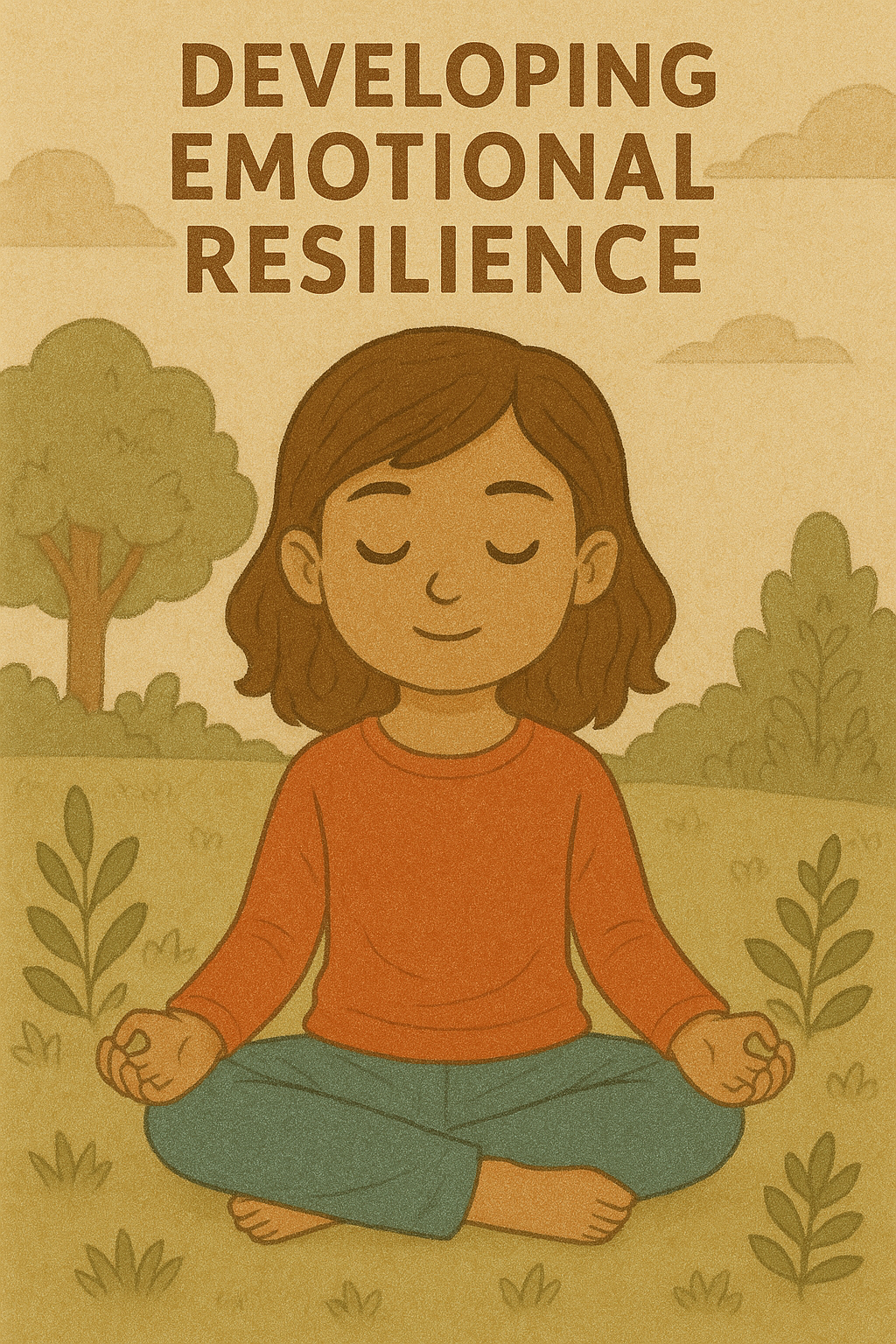Your basket is currently empty!

Nurturing Compassion from Within
Mindfulness isn’t just about calming the mind — it’s also about tuning in. When children pause, notice, and reflect, they develop self-awareness — the ability to see their own thoughts, feelings, and impulses more clearly. As that awareness deepens, kindness naturally flows outward: to others, and even to themselves.
The Power of Self-Awareness for Kids
Self-awareness in children includes:
- Naming emotions: knowing “I am worried,” “I am frustrated,” or “I feel excited.”
- Understanding triggers: noticing what events or thoughts lead to these feelings.
- Recognising physical cues: tightness in the chest, fluttering in the stomach, racing thoughts.
- Seeing connections: how thoughts, feelings, and behaviours influence one another.
When kids develop this clarity, they gain a “pause button.” Instead of reacting in anger, they might stop, breathe, name the feeling, and choose a kinder path.
How Kindness Emerges from Awareness
Once children begin to see what’s going on inside, they naturally start to see what’s going on around them:
- They sense others’ emotions more deeply (e.g. “My friend seems sad.”)
- They recognise that small acts — a kind word, helping hand, forgiveness — make a difference.
- They understand that everyone has struggles; kindness becomes a response rather than an afterthought.
- They grow in empathy, patience, and gentleness, enriching their relationships at home, school, and in friendships.
Why This Matters: The Long-Term Gains
- Better emotional regulation: fewer meltdowns, more resilience under stress.
- Deeper connections: friendships and family bonds rooted in empathy.
- Greater social harmony: children who understand their own feelings are less likely to lash out or judge others.
- Mental wellbeing: self-compassion and kindness reduce shame, comparison, and internal conflict.
Practical Tools & Practices You Can Use
Here are daily practices to support self-awareness and kindness in children, with ways you can link to your content or products:
- Emotion Check-Ins
Regularly ask: “What did I feel today? Why?” Use emotion charts or cards. - Journaling / Drawing Feelings
Invite children to write or draw about what they felt, what triggered it, and how they responded.
(Our Feelings Journal is great for this) - Gratitude & Kindness Prompts
Each day, ask: “What kindness did I see today? What kindness did I give?” - Mindful Listening & Reflection
Practice listening fully without interrupting, then reflect: What did you notice? What feeling came up? - Compassionate Self-Talk / Self-Compassion
Teach children phrases like: “It’s okay to make mistakes,” “I’m learning,” or “May I be kind to myself.” - Role-Playing & Stories
Use stories or “what if” prompts: “What would you do if someone is left out?” or “How could you respond kindly if…?” - Random Acts of Kindness
Encourage small acts: sharing, helping, complimenting, writing a note.
Sample Routine: 5–10 Minute Daily Practice
| Time of Day | Practice |
|---|---|
| Morning (2–3 min) | Gratitude: list 2–3 things you are thankful for |
| Midday / Transition | Check-in: “How am I feeling right now?” |
| Evening (5 min) | Reflection: “What kindness did I notice? How did I show kindness?” |
Even short practices can build powerful habits over time.
Overcoming Common Challenges
- Struggling to name emotions: Use basic emotion words and visuals (happy, sad, mad, worried) before expanding.
- Reluctance to journal or talk: Try drawing, voice memos, or prompts you do together.
- Busy schedules: Incorporate check-ins during car rides, mealtimes, or bedtime.
- Comparisons or self-criticism: Reinforce self-compassion — everyone feels, everyone learns.
Long-Term Vision
As these practices become habitual:
- children become more attuned to their inner life
- kindness flows more naturally — to friends, siblings, strangers
- they develop emotional resilience, empathy, and maturity
- your home, classroom, or community becomes more compassionate and connected
Explore our Feelings Journal to help your child reflect daily, grow in awareness, and spread kindness with others.

